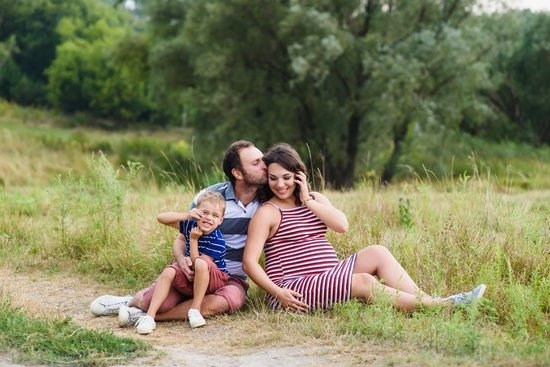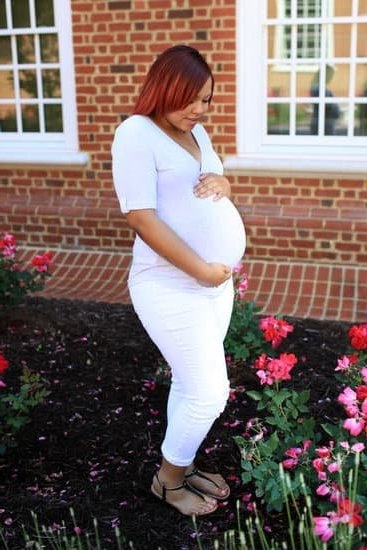The curiosity about how long does a cat pregnancy last is quite common among cat owners, especially those who are expecting their feline companion to give birth. Understanding the basics of a cat’s reproductive cycle and being able to recognize the signs of pregnancy are crucial for providing proper care for an expectant cat.
This article aims to shed light on the various aspects of cat pregnancy, from the length of gestation and factors affecting it, to maternal care and preparing for kitten birth.
One of the fundamental aspects of understanding cat pregnancy is knowing the duration of a feline’s gestation period. The length of time a cat remains pregnant can vary, depending on several factors such as breed, age, and overall health. Along with crucial information about the timeline and stages of cat pregnancy, this article will provide detailed explanations that will help cat owners gain insights into this unique aspect of feline reproduction.
In addition to discussing the length of cat pregnancy, this section will also go over the signs indicating that a cat is pregnant. Recognizing these signs early on is essential for preparing for the arrival of kittens and ensuring adequate care for the expectant mother throughout her pregnancy. Overall, gaining a thorough understanding of cat pregnancy can help pet owners provide responsible care and support during this special time in their feline companion’s life.
The Cat Gestation Period
The gestation period of a cat, or the length of a cat’s pregnancy, is an essential aspect of understanding feline reproduction. It is crucial for cat owners to be aware of the timeline and stages of cat pregnancy in order to provide proper care and support for their pregnant cats. So, how long does a cat pregnancy last?
Length of Cat Pregnancy
On average, the gestation period for a cat ranges from 63 to 65 days. However, this can vary depending on individual factors such as breed, age, and health. It is important for cat owners to be familiar with the specific duration of their cat’s pregnancy, as well as the signs and symptoms that may indicate the onset of labor.
Timeline and Stages
Understanding the timeline and stages of cat pregnancy can help pet owners anticipate and prepare for the arrival of kittens. The gestation period is divided into three main stages: early, middle, and late pregnancy. Each stage comes with its own set of physical and behavioral changes in the expectant mother.
It is vital for cat owners to monitor their pregnant cats closely during each stage of pregnancy and seek veterinary care if any concerns arise. Proper knowledge about the length, timeline, and stages of a cat’s pregnancy can contribute to ensuring a safe and healthy birthing process for both the mother cat and her kittens.
Factors Affecting the Length of Cat Pregnancy
When it comes to the duration of a cat’s pregnancy, there are several factors that can impact how long it lasts. Understanding these factors can help pet owners and breeders better prepare for the arrival of new kittens and ensure the mother’s health and well-being. Here are some of the key factors that can influence the length of a cat’s pregnancy:
1. Age: The age of the cat can play a role in how long her pregnancy lasts. Generally, older cats may have shorter gestation periods, while younger cats may carry their kittens for a longer period of time.
2. Breed: Different breeds of cats may have varying gestation periods. While the average length of a cat’s pregnancy is about 63-65 days, certain breeds may have slightly longer or shorter pregnancies.
3. Health: The overall health and wellness of the mother cat can also impact the length of her pregnancy. Cats that are in good physical condition and receive proper prenatal care may have pregnancies that proceed as expected, while underlying health issues could potentially affect the duration of the pregnancy.
As with any animal pregnancy, it’s important to consult with a veterinarian to ensure proper care and monitoring throughout the process. By understanding these factors, pet owners can be better prepared for how long does a cat pregnancy last and what to expect during this special time in their feline companion’s life.
Common Cat Pregnancy Complications
During the course of a cat’s pregnancy, there are certain complications that can arise, impacting the health of the mother and her unborn kittens. It is important for cat owners to be aware of these potential issues and know how to recognize and address them in order to ensure the well-being of their pets.
Some common cat pregnancy complications include:
- Eclampsia: Also known as milk fever, this condition occurs when a mother cat experiences a sudden drop in blood calcium levels after giving birth. It can lead to muscle tremors, seizures, and even death if not treated promptly.
- Dystocia: This refers to difficulty during labor and delivery. It can occur if the kittens are too large to pass through the birth canal or if there are complications with the positioning of the kittens.
- Uterine Inertia: This condition occurs when the muscles of the uterus fail to contract during labor, leading to prolonged or stalled labor. It can result in distress for both the mother and her kittens if not addressed by a veterinarian.
Recognizing these complications is crucial for ensuring the health of the pregnant cat. If any signs of distress or unusual behavior are observed, it is important to seek veterinary care immediately.
In addition, proper prenatal care and regular check-ups with a veterinarian can help in identifying and addressing any potential issues early on in the pregnancy. By being proactive and attentive to their pet’s needs, cat owners can help minimize the risk of complications during pregnancy and childbirth.
Maternal Care and Nutrition During Cat Pregnancy
During cat pregnancy, proper maternal care and nutrition are essential for the health and well-being of the mother cat and her developing kittens. Providing the right support and environment can help ensure a successful and comfortable pregnancy for the feline mother. Understanding the specific needs of a pregnant cat and addressing them accordingly is crucial in ensuring a smooth pregnancy and delivery process.
Importance of Proper Nutrition
Proper nutrition plays a critical role in supporting the health of a pregnant cat. As the pregnancy progresses, the nutritional requirements of the mother cat change to accommodate the growing fetuses. It is important to provide high-quality, balanced meals that are rich in essential nutrients such as protein, calcium, and vitamins. Commercial cat foods formulated for pregnant or nursing cats often provide the necessary nutrients, but consulting with a veterinarian for dietary recommendations is advised.
Supplements and Hydration
In some cases, additional supplements may be recommended by a veterinarian to ensure that the mother cat receives all necessary nutrients during pregnancy. It is also important to ensure that she has access to clean, fresh water at all times to prevent dehydration, especially as her body works hard to support both her own needs and those of her developing kittens.
Maintaining Maternal Comfort
Creating a comfortable environment for the expectant mother is also crucial during cat pregnancy. Providing a quiet, safe space where she can rest undisturbed can help reduce stress and create an ideal setting for delivering her kittens when labor begins. Additionally, ensuring that she receives regular veterinary check-ups to monitor her health throughout the pregnancy is vital.
By focusing on proper maternal care and nutrition during cat pregnancy, pet owners can help ensure a healthy and comfortable experience for their feline companions. Meeting the specific needs of pregnant cats through balanced nutrition, supportive supplements if needed, adequate hydration, and a comfortable environment sets the stage for successful pregnancies and births. These efforts contribute to fostering the well-being of both mother cats and their newborn kittens.
Preparing for Kitten Birth
The gestation period of a cat, or how long does a cat pregnancy last, is an essential aspect for pet owners to understand as they prepare for the arrival of new kittens. Typically, a cat’s pregnancy lasts approximately 63 to 65 days, which is around two months.
However, this timeframe can vary depending on various factors such as the breed and age of the cat. It is important for pet owners to familiarize themselves with the timeline and stages of cat pregnancy in order to provide proper care and support for their pregnant feline.
One of the first steps in preparing for kitten birth is to create a comfortable and safe environment for the mother cat and her upcoming litter. This includes setting up a cozy nesting area where the expectant mother can rest and prepare for labor.
Pet owners should also consider providing a quiet and secluded space where the cat can give birth without disturbances. Additionally, it is essential to gather necessary supplies such as clean towels, blankets, and a suitable birthing box or area.
Understanding the nesting behavior of pregnant cats is crucial in preparing for kitten birth. As the pregnancy progresses, expectant mother cats may exhibit certain behaviors such as seeking out quiet corners or spaces to build their nest. They may also display increased restlessness or become more vocal as they approach labor. Recognizing these signs can help pet owners provide the necessary support and assistance to their pregnant feline during this time.
| Aspect | Details |
|---|---|
| Gestation Period | Approximately 63-65 days |
| Nesting Behavior | Cats may seek out quiet corners or spaces to build their nest. |
Signs of Approaching Labor in Cats
As a cat owner, it’s essential to be aware of the signs that indicate your feline friend is approaching labor. Understanding these signs can help you prepare for the upcoming birth and provide the necessary support for your pregnant cat. So, how long does a cat pregnancy last and what are the signs of approaching labor in cats?
The gestation period for a cat typically lasts between 63 to 65 days, although this can vary slightly depending on various factors such as breed, age, and health. As the due date approaches, you may notice certain changes in your cat’s behavior and physical appearance.
One of the most evident signs that labor is imminent is when your cat starts looking for a quiet and secluded place to give birth. This behavior is known as nesting, where your cat will seek out a comfortable space to prepare for the arrival of her kittens.
In addition to nesting, you may also observe physical changes in your cat’s body as she nears labor. Her abdomen may appear visibly enlarged as the kittens move into position for birth. You might also notice behavioral changes such as restlessness or seeking extra attention from you.
Some cats may become more vocal or display signs of discomfort as they experience contractions leading up to labor. It’s important to monitor these changes closely and provide reassurance and comfort to your expectant cat during this time.
As your cat approaches labor, it’s crucial to ensure that she has a safe and calm environment in which to give birth. You can create a cozy birthing area by providing a clean and comfortable box with soft bedding where your cat can deliver her kittens.
Keep an eye on your cat for further signs such as increased panting or pacing as these could indicate that active labor has begun. By being attentive to these signals, you can help facilitate a smooth birthing process for your feline companion.
Overall, understanding the signs of approaching labor in cats plays a significant role in ensuring that both the mother and her kittens have a successful and stress-free birthing experience. By being well-informed about the timeline of cat pregnancy and diligently observing your pet’s behavior, you can support her through this crucial period with care and attentiveness.
Aftercare for Mother Cat and Kittens
After successfully delivering her litter of kittens, the mother cat will require proper care and attention to ensure her recovery and the well-being of her newborns. The postpartum period is crucial for the mother cat’s health, as well as for the development of the kittens. During this time, she will need a comfortable and safe environment, along with specific care to help her recuperate from giving birth.
One of the essential aspects of aftercare for a mother cat is providing a warm and quiet space where she and her kittens can rest undisturbed. This space should be equipped with a nesting box or area that allows the mother to nurse and bond with her offspring.
Additionally, it’s important to monitor the mother cat for any signs of postpartum complications or health issues that may arise after giving birth. This includes observing her behavior, appetite, and physical condition to ensure that she is recovering well.
In terms of newborn kitten care, it’s crucial to provide them with warmth, nutrition, and stimulation during their early days of life. This includes ensuring they have access to their mother’s milk and are maintaining healthy weight gain. Monitoring their growth and development is also essential during this stage. As they grow, they will gradually become more active and start exploring their environment within the nesting area.
| Aftercare for Mother Cat | Aftercare for Kittens |
|---|---|
| Provide a warm and quiet space for rest | Ensure access to mother’s milk |
| Monitor for postpartum complications | Monitor growth and development |
| Observe behavior, appetite, physical condition | Ensure healthy weight gain |
By providing proper aftercare for both the mother cat and her kittens, pet owners can contribute to a successful recovery process while promoting the health and vitality of these feline family members.
Conclusion
In conclusion, understanding the duration of a cat pregnancy is essential for responsible pet ownership and proper care for expectant mothers and their kittens. The average gestation period for a cat is approximately 63 to 65 days, but it can vary depending on various factors such as age, breed, and health. It is crucial for cat owners to recognize the signs of pregnancy in their feline companions and provide them with the necessary care and support throughout the entire process.
The joys of witnessing a cat give birth and nurturing her kittens are matched by the responsibilities that come with it. From ensuring proper maternal care and nutrition during pregnancy to preparing for kitten birth and providing aftercare for both the mother cat and her newborns, there are many considerations to take into account. By understanding the stages of cat pregnancy, potential complications, and signs of approaching labor, owners can better prepare themselves to support their cats through this journey.
Ultimately, cat pregnancy and birth are not only a natural part of life but also a significant responsibility for pet owners. By being knowledgeable about what to expect during this time, providing proper care and attention to pregnant cats, and being prepared for kitten birth and aftercare, pet owners can ensure the health and well-being of both mother cats and their newborn kittens.
The love and joy that come from witnessing new life enter the world should always be accompanied by commitment to responsible pet ownership.
Frequently Asked Questions
How Many Months Is a Cat Pregnant?
A cat is typically pregnant for about 2 months or around 63-65 days. The exact length of the pregnancy can vary depending on the individual cat and other factors.
How Can You Tell How Far Along a Cat Is?
You can tell how far along a cat is in her pregnancy by observing physical changes and behaviors. As the pregnancy progresses, you may notice her abdomen getting larger, her nipples becoming more prominent, and behavioral changes such as increased affection or seeking out nesting areas.
How Many Kittens Will My Cat Have First Time?
A first-time mother cat, also known as a queen, can have a varying number of kittens in her first litter. On average, a queen can have between 1 to 9 kittens in a litter, but it’s more common for first-time mothers to have smaller litters.
The number of kittens also depends on factors such as the breed and the individual cat’s health.

Welcome to my fertility blog. This is a space where I will be sharing my experiences as I navigate through the world of fertility treatments, as well as provide information and resources about fertility and pregnancy.





